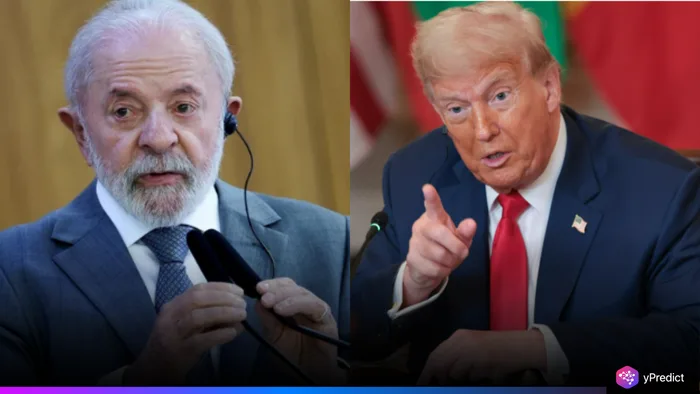
Many Brazilians view former U.S. President Donald Trump’s recent threat of a 50% tariff as an activist act targeting their country. In a campaign rally in Florida, Trump suggested he would impose large tariffs on Brazilian goods if elected again, carping at media reports of Brazil’s undercutting U.S. agriculture and steelmaking industries. Brazilian citizens, political leaders, and economists all reacted strongly in Brazil against Trump’s statements, claiming that his threat was unwarranted interference in Brazil’s internal affairs.
In Brazil, people quickly became defensive more out of nationalism than out of fear. Most people in Brazil are of the opinion that the U.S. has no right to dictate Brazil’s domestic economic policies. President Luiz Inácio Lula da Silva, who is very vocal against unfair trade rules at the international level, is publicly defending Brazil by going so far as to call Trump a liar. Lula’s very strong remarks against the ex-president’s statements gave him credence and popularity as U.S. instability over Brazil’s domestic economic policies heightened.
Lula’s Administration Rises to the Occasion
The Lula administration reacted quickly to the statements, stating they were politically motivated and factually wrong. Brazil’s Foreign Ministry issued a statement denouncing the threat and cautioned that any such tariffs would be violations of World Trade Organization rules. Lula reminded the world that Brazil does an excellent job acting as a responsible international trading partner and has strong and existing partnerships with countries around the world–such as with the European Union and China.
Many Brazilians saw Lula’s response as measured but determined. Political analysts in Brazil say that the Lula administration has turned the threat into an opportunity to show strength, unity, and diplomatic maturity. By not ramping-up the rhetoric, Lula will portray Brazil as the calm and rational actor in a tumultuous global trading environment. His response, without panic, but clearly with purpose, resonates exceptionally well with both rural and urban voters.
Why Brazilians View the Tariff Threat as Meddling
The suggestion of a 50% tariff, especially without consultation, felt like an insult to many in Brazil. Business owners, farmers, and exporters fear such measures would hurt both sides, not just Brazil. Trump’s comments have been interpreted by many as interference in Brazilian sovereignty. A growing number of citizens believe the United States is using trade threats to control economic decisions in emerging economies.
The public discourse in Brazil now centers around autonomy and respect. As a sovereign nation, Brazil expects dialogue, not threats, when disagreements arise. Economists have pointed out that Brazil does not flood US markets unfairly. On the contrary, both countries benefit from their mutual trade in agriculture, energy, and technology.
Lula’s Popularity Grows as Brazil Rallies Together
Trump’s Brazil tariff threat seems to have inadvertently boosted Lula’s domestic image. In times of external pressure, people tend to back leaders who stand firm and defend national interests. Lula’s handling of the situation, both in tone and content, has reassured many Brazilians that their government is capable of navigating international tensions without bowing to intimidation.
A recent poll showed a rise in approval for Lula’s foreign policy decisions. Even some of his critics acknowledged that the administration had acted wisely and decisively. The broader message emerging from Brazil is one of unity against external pressure, and that resonates deeply across all regions and social classes
The Global Stakes Behind the Tariff Talk
While the controversy itself may seem bilateral, the ramifications are global. Should the US act on the threat, it would formally begin a new chapter in the trade wars. Any changes to Brazil’s exports would affect food prices, supply chains, and geopolitical alliances. Lula has emphasized the consequences of “economic nationalism” that punishes developing countries for merely playing by the rules of our game.
Experts fear this latest spike in US-Brazil trade tensions may drive Brazil closer to China or other non-Western-based trade blocs. If this comes to fruition, it would reduce US influence in Latin America, and potentially isolate American firms trying to access markets in the region. Viewed through this wider lens, Trump’s comment could negatively impact US global interests more than contribute.







